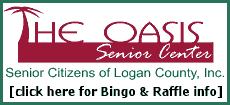|
 The study was overseen by Informed-Choice, a nonprofit coalition of dietary supplements, and conducted by a British company, HFL. The study was overseen by Informed-Choice, a nonprofit coalition of dietary supplements, and conducted by a British company, HFL.
HFL bought best-selling brands of a variety of supplements made by companies that were not believed to screen for banned substances as part of their routine quality control process. The study does not reveal the names of the brands or their manufacturers.
Of the 52 supplements that could be analyzed for steroids, 13 showed up with steroid contamination. The result surprised Travis Tygart, the CEO of the U.S. Anti-Doping Agency, who said no American athlete has tested positive because of supplement contamination since 2004.

"I think it's surprising, and hopefully they'll provide names so this illegal activity can be shut down," Tygart said.
These results come about five years after an International Olympic Committee study that sampled 240 supplements purchased in America and found 18.8 percent of them contained steroids.
"The presence of steroids and stimulants in supplement products is still very much an issue," the conclusion of the report read. "It is clear that not all supplement manufacturers follow good manufacturing practices and the necessary controls are not always implemented to ensure the safety of athletes and the general public who use the supplement products."
Kelly Hoffman, executive director of Informed-Choice, told USA Today, which first reported on the study, that banned substances can find their way into products accidentally, such as when manufacturers fail to properly clean equipment.
[to top of second column]


 |

In all, 10 categories of supplements were tested. Those known as testosterone boosters were most susceptible to having banned substances in them; six of nine boosters contained androstenedione, which was declared illegal about three years ago.
Though amateur athletes are considered most susceptible to buying tainted products at health stores, the issue is also relative to professional sports.
It has long been default mode for players who test positive to say they used a tainted product.
Three years ago, the NFL and the players union began working with the nonprofit company, NSF International, that put supplements through a purity test and labels substances that are safe to take.

Lori Bestervelt, senior vice president and chief technical officer for NSF, said she also wasn't surprised at the results of the HFL test.
"I think there are two categories, one where people are intentionally putting them in, and another where they aren't but they don't have a good rein on the supply chain or manufacturing practices, so things can slip in," she said. "If you don't have good control of the supply chain, and you're not testing and auditing, things like this can happen."
Bestervelt said the NSF Web site provides a list of supplements that have carry the "Certified for Sport" seal, meaning they've passed that organization's rigorous testing process and are at low risk to contain banned substances.
___
On the Net:
HFL: http://www.hfl.co.uk/
NSF "Certified for Sport" list:
http://www.nsf.org/Certified/
BannedSub/listings.asp
[Associated
Press; By EDDIE PELLS]
Copyright 2007 The Associated
Press. All rights reserved. This material may not be published,
broadcast, rewritten or redistributed. |